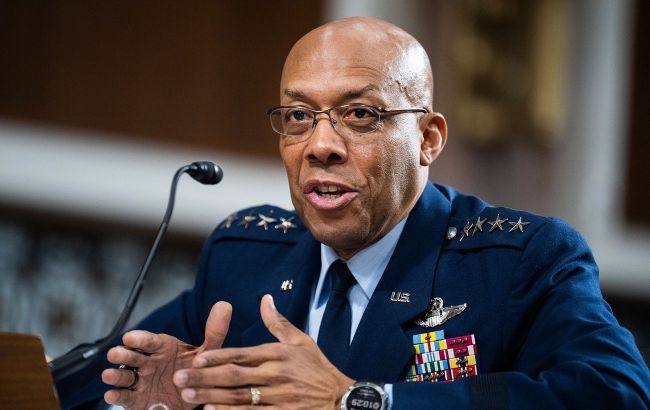Top US general visits Middle East to prevent major conflict
 Photo: US general Charles Brown (Getty Images)
Photo: US general Charles Brown (Getty Images)
Charles Brown, US Chairman of the Joint Chiefs of Staff, has embarked on an unannounced visit to the Middle East to prevent a new escalation in the region due to the threat of an Iranian attack on Israel, according to Reuters.
The general began his trip in Jordan and plans to visit Egypt and Israel in the coming days to hear from military leaders.
The visit comes as the US seeks to broker a ceasefire agreement in the Gaza Strip in exchange for the release of hostages between Israel and the Palestinian militant group Hamas, which, according to Brown, "help bring down the temperature" if achieved.
"At the same time, as I talk to my counterparts, what are the things we can do to deter any type of broader escalation and ensure we're taking all the appropriate steps to (avoid) ... a broader conflict," the general said.
He also noted that "We brought in additional capability to send a strong message to deter a broader conflict ... but also to protect our forces should they be attacked." And he emphasized that the protection of American troops was "paramount."
"We stay postured, watching the (intelligence) and force movements," Brown added.
The general did not speculate on what Iran and its allies might do but said he hopes to discuss various scenarios with his Israeli counterpart.
"Particularly, as I engage with my Israeli counterpart, how they might respond, depending on the response that comes from Hezbollah or from Iran," Brown said.
The threat of a large-scale war in the Middle East
Tensions in the Middle East have significantly worsened following the assassination of Hamas political leader Ismail Haniyeh in Tehran on July 31.
Initially, Iranian authorities announced plans to launch a large-scale attack on Israel in retaliation. However, they later postponed the potential strike due to ceasefire negotiations and hostage exchanges in the Gaza Strip.
Instead, the killing of the Islamic commander has significantly heightened tensions between Israel, Iran, and the Lebanese group Hezbollah, and has led to attacks by Yemen Houthis on commercial vessels in the Red Sea.
In the following weeks, US forces faced attacks from Iran-linked militants in Syria, Iraq, and Jordan.
In August, the Israel Defense Forces killed Hamas commander Samer Mahmoud al-Haj in Lebanon. Israeli forces also eliminated a Hezbollah rocket unit commander.
On Friday, August 23, Iran's new Foreign Minister Abbas Araghchi told his French and British counterparts in phone conversations that his country has the right to respond to Israel for the killings of Islamic group leaders.

